《CHESHIRE AND NORTH PRIUATE INTERNATIONAL LAW》
| 作者 | P.M.NORTH 编者 |
|---|---|
| 出版 | LONDON BUTTERWORTHS |
| 参考页数 | 756 |
| 出版时间 | 1979(求助前请核对) 目录预览 |
| ISBN号 | 040656566X — 求助条款 |
| PDF编号 | 813695418(仅供预览,未存储实际文件) |
| 求助格式 | 扫描PDF(若分多册发行,每次仅能受理1册) |
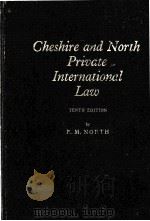
B. Actions in rem84
C. Assumed jurisdiction over actions in personam87
3. Jurisdiction over the parties99
A. Persons who cannot invoke the jurisdiction99
B. Persons who may claim exemption from the jurisdiction100
(1) Sovereigns and sovereign States100
Common Law rule of immunity100
Scope of State Immunity Act 1978101
Exceptions from immunity101
Submission to jurisdiction103
Indirect impleading104
Miscellaneous matters in 1978 Act105
Proof of sovereignty105
(2) Ambassadors and other diplomatic officers106
(Ⅰ) Diplomatic agents107
(Ⅱ) Members of the administrative and technical staff108
(Ⅲ) Members of the service staff108
Cessation and waiver of privileges108
Members of international organizations110
Consular immunities111
4. Staying Proceedings112
A. Foreign jurisdiction clauses112
B. The plea of lis alibi pendens114
C. Forum non conveniens119
5. Statutory limitations on jurisdiction122
6. E.E.C. Convention on jurisdiction and the enforcement of judgments in civil and commercial matters123
CHAPTER Ⅴ-THE PROOF OF FOREIGN LAW125
Foreign law must be proved by appropriate evidence125
Competence of witnesses127
Court not bound by evidence129
CHAPTER Ⅵ-THE EXCLUSION OF A FOREIGN LAW THAT WOULD NORMALLY BE APPLICABLE131
1. Foreign revenue laws131
2. Foreign penal laws135
3. Expropriatory legislation137
4. Where the foreign law is repugnant to the distinctive policy of English law145
Relevance of public policy145
Attitude of the courts147
Cases where distinctive policy affected149
Broadening of concept of public policy151
Judicial discretion153
CHAPTER Ⅶ-DOMICIL156
1. The definition of "domidT156
2. General rules162
3. The acquisition of a domicil of choice165
Residence165
Intention166
Residence must be voluntary170
Borden of proof174
4. Domicil of origin and domicil of choice contrasted175
5. Domicil of dependent persons178
Children178
Lunatics181
6. Domicil of married women182
7. Domicil, nationality and residence183
8. The position of corporations188
PART Ⅲ-THE LAW OF OBLIGATIONS195
CHAPTER Ⅷ-CONTRACTS195
1. Doctrine of the proper law195
A. The theories195
B. The modern law198
(1) Where there is an express choice of the proper law199
(2) Where there is an inferred choice of the proper law203
(3) Where there is no choice of the proper law206
Ambiguity of word "intention"206
Modem criterion207
Examples of relevant factors211
2. Particular topics212
A. Creation of the obligation212
(1) General principles212
(2) Specific issues215
(Ⅰ) Fact of agreement215
(Ⅱ) Reality of agreement216
(Ⅲ) Consideration and other essential requirements apart from form218
(Ⅳ) Formal validity219
(Ⅴ) Capacity221
(Ⅵ) Illegality223
B. Other matters affecting the obligation230
(Ⅰ) Substantial validity230
(Ⅱ) Performance235
(Ⅲ) Interpretation239
(Ⅳ) Discharge241
(Ⅴ) Uniform laws on International Sales Act248
(Ⅵ) E.E.C. draft Obligations Convention249
CHAPTBR Ⅸ-NEGOTIABLE INSTRUMENTS251
1. Introductory251
2. Negotiability in England252
3. Formal validity252
4. Capacity254
5. Interpretation and validity254
6. Presentment, protest and notice of dishonour255
CHAPTER Ⅹ-TORTS258
1. Foreign torts258
A. The theories258
(Ⅰ) Lex fori258
(Ⅱ) Lex loci delicti commissi259
(Ⅲ) Proper law of the tort260
B. Present English law263
(1) Refusal to accept the concept of the proper law264
(2) Present position and effects of Phillips v. Eyre266
(Ⅰ) Actionable in England266
(Ⅱ) Reference to the lex loci delicti commissi268
(Ⅲ) Inter-relation of the two parts of the rule in Phillips v. Eyre271
2. Torts in England284
3. The place of a tort285
4. Maritime torts290
PART Ⅳ-FAMILY LAW CHAPTER XI-MARRIAGE295
1. The meaning of marriage: polygamous marriages295
(Ⅰ) What law determines the nature of a marriage?298
(Ⅱ) Can the nature of a marriage change?302
(Ⅲ) Recognition of polygamous marriages in the English courts307
2. Formalities of marriage312
A. Locus regit actum312
B. Exceptions to the rule locus regit actum317
(Ⅰ) The two statutory exceptions318
(Ⅱ) The common law exception320
3. Capacity to marry330
A. The conflicting theories stated330
B. Evaluation of the two theories332
(Ⅰ) The intended matrimonial home doctrine332
(Ⅱ) The dual domicil theory334
C. The rule as deducible from the English decisions335
D. Particular issues345
(Ⅰ) Capacity and recognition of foreign divorces345
(Ⅱ) Polygamy348
CHAPTER Ⅻ-MATRIMONIAL CAUSES351
1. Introduction351
2. Polygamous marriages and matrimonial relief353
3. Suits for dissolution of marriage356
A. Jurisdiction356
(Ⅰ) Domicil357
(Ⅱ) Habitual residence358
(Ⅲ) Jurisdiction to entertain other matrimonial proceedings in respect of the same marriage358
(Ⅳ) Procedural issues361
B. Choice of law364
C. Recognition of foreign divorces366
(1) Recognition at common law366
(2) The Recognition of Divorces and Legal Separations Act 1971369
(3) Extra-judicial divorce proceedings378
(4) Grounds for non-recognition of foreign divorces384
(5) The effect in England of a foreign divorce decree387
4. Suits for nullity of marriage389
A. The distinction between void and voidable marriages389
B. Jurisdiction of the English courts394
C. Choice of law396
D. Recognition of foreign decrees of nullity406
5. Suits for judicial separation416
A. Jurisdiction416
B. Choice of Taw417
C. Recognition of foreign decrees of judicial separation418
6. Suits for decree of presumption of death and dissolution of marriage421
7. Declaratory judgments upon status423
(Ⅰ) Under O. 15, r. 16 of the Rules of the Supreme Court423
(Ⅱ) Under the Matrimonial Causes Act 1973, s. 45 (1)426
(Ⅲ) Staying proceedings under O. 15, r. 16 and s. 45 (1)429
8. Financial relief429
A. Jurisdiction of the English court429
B. Effect of foreign matrimonial proceedings on English financial relief433
C. Choice of law435
D. Recognition and enforcement of foreign orders435
CHAPTER ⅩⅢ-LEGITIMACY, LEGITIMATION AND ADOPTION439
Introductory439
Family Law Reform Act 1969440
1. Legitimacy440
What law supplies test of legitimacy at birth?440
Effect of acceptance of doctrine of putative marriage447
The present rule447
Legitimacy Act 1959450
2. Legitimation451
(1) Legitimation per subsequens matrimoniwn451
(2) Legitimation by recognition453
(3) Succession rights of legitimated children455
3. The effect in England of a legitimate status recognized by a foreign lex domicilii455
4. Declarations of legitimacy and legitimation456
(1) Legitimacy456
(2) Legitimation457
5. Adoption458
(1) English adoptions458
(2) Recognition of foreign adoptions463
(3) Effect of foreign adoptions469
CHAPTER ⅩⅣ-MINORITY AND MENTAL DISORDER470
1. Minority470
(1) Powers of the English court470
(2) Foreign guardians not confirmed by the English court475
2. Mental disorder476
(1) Control of the person of the patient477
(2) Control of a patient's property477
(3) Rights and obligations in contract479
PART V-THE LAW OF PROPERTY483
CHAPTER ⅩⅤ-THE DISTINCTION BETWEEN MOVABLES AND IMMOVABLES483
Classification of subject-matter of ownership483
Whether movable or immovable determined by lex situs483
Stage at which distinction between realty and personalty material487
Choses in action and choses in possession487
CHAPTER ⅩⅥ-THE LAW OF IMMOVABLES489
1. Jurisdiction489
(1) Contract relating to foreign land495
(2) Fraud and other unconscionable conduct496
(3) Fiduciary relationship497
2. Choice of law503
(1) Introduction503
(2) Capacity to take and transfer immovables505
(3) Formalities of alienation507
(4) Essential validity of transfers507
(5) Contracts509
(6) Succession511
CHAPTER ⅩⅦ-THE LAW OF MOVABLES520
1. Particular assignments520
A. Transfer of choses in possession520
1. The various theories520
Law governing transfer of choses in possession520
Four possible systems522
(Ⅰ) The lex domicilii522
(Ⅱ) The lex situs523
(Ⅲ)The lex loci actus524
(Ⅳ) The proper law of the transfer525
2. The modern law525
B. Assignments of choses in action536
1. Debts536
(1) The various theories536
(2) The modern law stated541
(Ⅰ) Voluntary assignments541
(a) Questions dependent solely upon the validity and effect of the assignment541
(b) Questions dependent on the nature of the right Assigned545
(Ⅱ) Involuntary assignments548
2. Negotiable instruments549
(1) State of the law before the Bills of Exchange Act549
(2) Effect of the Bills of Exchange Act551
3. Shares555
2. Universal assignments of movables557
A. Bankruptcy557
(1) Jurisdiction of English courts557
Concurrent bankruptcies560
(2) Effect in England of a foreign adjudication in bankruptcy562
(3) Effect of an English adjudication567
(4) Administration in bankruptcy570
(5) Discharge570
B. Assignment on marriage572
(1) Assignment where there is no ante-nuptial contract573
(2) Assignment where there is an ante-nuptial contract581
(Ⅰ) Capacity581
(Ⅱ) Formal validity585
(Ⅲ) Essential validity585
C. Assignment on death588
1. Administration of assets590
(1) Jurisdiction of English court to grant probate or administration590
(2) Duty of administrator acting under an English grant592
(3) Title of administrator under an English grant595
(4) Position of foreign administrator acting in England without an English grant595
2. Beneficial distribution of movables598
(1) Intestate succession598
(2) Testamentary succession599
(Ⅰ) Capacity599
(Ⅱ) Formalities601
(Ⅲ) Essential validity606
(Ⅳ) Construction609
(Ⅴ) Revocation611
3. Powers of appointment exercised by will614
(1) Capacity614
(2) Formalities615
(3) Essential validity616
(4) Construction617
(5) Revocation618
CHAPTER ⅩⅧ-CORPORATIONS620
1. Matters of status are governed by the lex domicilii620
2. Winding up of foreign corporations623
PART Ⅵ-FOREIGN JUDGMENTS AND ARBITRAL AWARDS629
CHAPTER ⅩⅨ-FOREIGN JUDGMENTS AND ARBITRAL AWARDS629
1. Principle of recognition629
Effect of foreign judgment in England629
Theory of comity630
Doctrine of obligation630
Merger of action631
2. Recognition and enforcement at common law632
A. Jurisdiction of the foreign court632
(1) Judgments in personam633
(Ⅰ) Residence of defendant in the foreign country at the time of action634
(Ⅱ) Submission of defendant to the foreign court635
(Ⅲ) Nothing else founds jurisdiction639
(2) Judgments in rem644
B. Finality of the judgment649
C. The judgment, if in personam, must be for a fixed sum651
D. Conclusiveness of foreign judgments651
E. Defences available to the defendant658
1. Foreign judgment obtained by fraud659
2. Foreign judgment contrary to public policy of English law661
3. Foreign judgment contrary to natural justice663
3. Direct enforcement of foreign judgments by statute665
A. Judgments Extension Act 1868665
B. Administration of Justice Act 1920666
C. Foreign Judgments (Reciprocal Enforcement) Act 1933668
D. European community judgments675
E. State Immunity Act 1978676
F. E.E.C. Convention on jurisdiction and the enforcement of judgments in civil and commercial matters677
4. Interrelation of the common law and statutes678
5. Foreign arbitral awards680
A. Enforcement at common law680
B. Enforcement under the Arbitration Act 1950682
C. Enforcement under the Arbitration Act 1975684
D. Enforcement under the Administration of Justice Act 1920 and the Foreign Judgments (Reciprocal Enforcement) Act 1933686
E. Enforcement under the Arbitration(Internationa] Investment Disputes) Act 1966686
F. Staying proceedings687
PART Ⅶ-SUBSTANCE AND PROCEDURE691
CHAPTER ⅩⅩ-PROCEDURE691
1. Difference between substance and procedure691
2. Matters appertaining to procedure695
(1) The time within which an action must be brought695
(2) Evidence698
(3) Parties701
(4) Priorities704
(5) The nature and extent of the remedy706
Remedy must harmonize with right put in suit706
Claim to set-off707
(6) Damages707
Remoteness of damage708
Measure of damages711
(7) Judgments in foreign currency713
(8) Execution720
1979《CHESHIRE AND NORTH PRIUATE INTERNATIONAL LAW》由于是年代较久的资料都绝版了,几乎不可能购买到实物。如果大家为了学习确实需要,可向博主求助其电子版PDF文件(由P.M.NORTH 1979 LONDON BUTTERWORTHS 出版的版本) 。对合法合规的求助,我会当即受理并将下载地址发送给你。
高度相关资料
-

- International Law Teaching and Practice
- 1982 Stevens & Sons
-
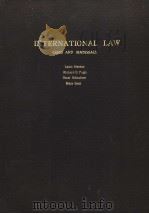
- INTERNATIONAL LAW CASES AND MATERIALS
- WEST PUBLISHING CO.
-
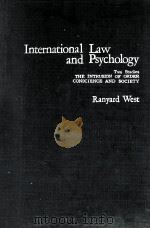
- INTERNATIONAL LAW AND PAYCHOLOGY
- 1974 OCEANA PUBLICATIONS INC
-

- INTERNATIONAL LAW AND ORDER
- 1971 STEVENS & SONS
-

- RECONCEIVING REALITY:WOMEN AND INTERNATIONAL LAW
- 1993 THE AMERICAN SOCIETY OF INTERNATIONAL LAW
-

- FOREIGN INVESTMENTS AND INTERNATIONAL LAW
- 1969 STEVENS & SONS LIMITED
-

- Biodiversity and International Law
- 1992 IOS PRESS
-

- TERRORISM AND INTERNATIONAL LAW
- 1984 PROGERSS PUBLISHERS MOSCOW
-
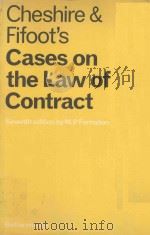
- CHESHIRE AND FIFOTT'S CASEES ON THE LAW OF CONTRACT
- 1977 BUTTERWORTHS
-
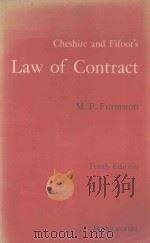
- CHESHIRE AND FIFOOT'S LAW OF CONTRACT
- 1981 LONDON BUTTERWORTHS
-

- ADVERTISING LAW IN EUROOE AND NORTH AMERICA
- 1992 KLUWEI LAW AND TAXATION PUBLISHERS
-
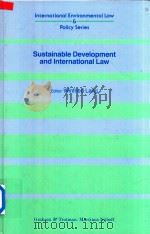
- Sustainable Development and International law
- 1995 Graham & Trotman Martinus Nijhoff
-
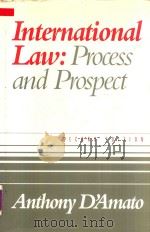
- International Law Process and Prospect
- 1995 Transnational Publishers
-
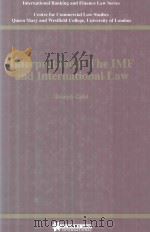
- Interpretation:the IMF and International Law
- 1996 Kluwer Law International
提示:百度云已更名为百度网盘(百度盘),天翼云盘、微盘下载地址……暂未提供。➥ PDF文字可复制化或转WORD
